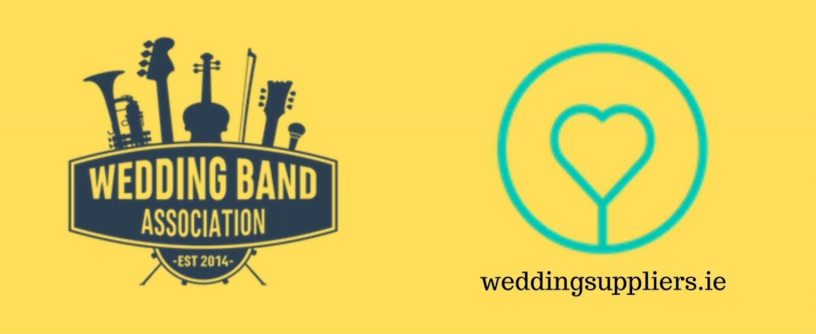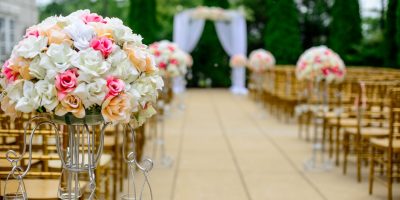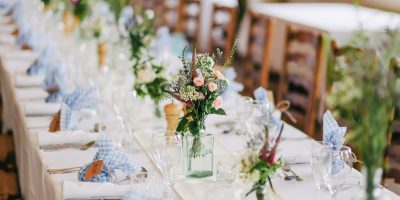Dear Minister Donnelly,
Ireland’s wedding industry and wedding couples have been largely silent since we, along with the rest of the nation, were confronted with the challenges brought by Covid19.
Almost overnight the 1,000s of people employed directly – and indirectly – in our sector watched as their livelihoods were put on hold and a vibrant sector of our economy thrown into turmoil. The wedding industry is made up of various full time self-employed and SMEs who are all still trying to find a way back to employment.
Wedding couples face the same challenges. Some have postponed to a later date. While others have postponed and (having moved back to their original date) had to postpone again and then some have simply lost all confidence and cancelled.
It should be noted that when the pandemic hit most couples moved into 2021. However, a huge cohort moved their wedding from March, April, May and June into the last quarter of 2020 and they are holding on in the hope they can have their wedding as planned.
We are now looking for more flexibility from the government in return for the forbearance we have shown in maintaining the commitment to put public health priorities first. We want something more from the coalition government than platitudes, we want a meaningful recognition of the contribution we make to Ireland’s economic and social wellbeing.
The number one challenge that faces the wedding industry and wedding couples is the current number restriction. It is simply not workable and it is presenting a range of issues. We are looking for the way the current number limits for wedding venues are calculated to be revised, making these numbers more realistic by setting the capacity on a pro-rata basis according to each venue’s certified fire safety capacity.
The existing – 50 guests per wedding – is a blunt and imprecise calculation that fails to take account of the fact that venues vary widely in terms of their capacity. We are proposing that weddings be limited to a percentage calculated from the venue’s certified fire safety maximum.
If a ballroom can host 200 guests on a normal night, then we suggest this figure is calculated into fitting X number of guests based on social distancing measures.
When government raised the number to 100 on the 29 June last, the wedding industry seen an influx of new bookings, couples who postponed to a later date moved back to original date. Then, sadly, their hope’s got shattered by the government’s decision to revert back to 50 and the whole industry became once again, deflated and stagnant.
At a stroke, calculating numbers on venue size would make weddings much more financially attractive for wedding venues, get 1000s of currently unemployed wedding vendors back to work and allow couples greater latitude in the planning process and would let the wedding industry get back on its feet to some degree.
Contact tracing and weddings
For their part, wedding couples have been patient as they wait to celebrate the biggest day of their lives with families and friends. An Irish wedding is a very special, almost unique social occasion and we believe their disappearance from family calendars the length and breadth of the country has left us all spiritually poorer.
What has crucially been overlooked is the fact that weddings are unique, indoor gatherings insofar as they are much less difficult for contact tracing processes, than other gatherings – say for example indoor/outdoor sports contests or cinema screenings.
Weddings are, by their very nature, strictly controlled hospitality events. The guest list will have full contact details of everyone present on the big day. Most people invited will know each other personally and have contact details for each other. This makes viable an early warning of any virus infection symptoms, should such an unlikely situation arise. Contact tracing could be done in a matter of hours.
We believe the government needs to factor in this reality in any future deliberations about the phasing strategy of leaving lockdown, with particular regard to our industry.
NPHET must be similarly made aware of this. Weddings offer an almost perfect environment for an early and rapid response to even one positive test result. As public health officials they could scarcely ask for a more responsible and diligent group of stakeholders than Ireland’s wedding industry. “Getting things right on the day” is our unique selling point. Any and all Covid19 health and safety requirements tailored for weddings would be thoroughly adhered to, without exception.
Entertainment and Dancing
Wedding vendors are undergoing covid-19 health and safety training courses. The Wedding Band Association and all its members have completed a Covid-19 officer training course, they have also issued extra safety measures which, they believe, will help instil confidence in their wedding couples and colleagues (see here) . A wedding is not a wedding with-out live entertainment and dancing. Couples want their entertainment, all of which is possible with social distancing. Venues have also spent thousands of euros on making their environments as safe as possible for their staff and guests. We are ready and we all want to get back to work.
Wedding couples – Stress, anxiety and financial hit
Returning to the current limit of guests, this artificially low number is having devastating downstream consequences for a host of suppliers who want to get back to work and should be allowed to get back to work. There are over 38 categories of wedding suppliers affected, from musicians to make up and so on. Couples are having to make extremely difficult choices which are the source of considerable stress-related anxiety. Since recent announcements to lockdown Kildare, Offaly and Laois we have seen couples forced to cancel their wedding within hours of it due to take place. This is simply unacceptable. We cannot see a repeat of this.
Under-ground Weddings – Cross border Weddings
We are now hearing anecdotally that some couples are abandoning the carefully regulated environment of the hotel venue and are opting instead to simply hire or purchase a marquee and manage their own wedding events. While perhaps understandable, this opens up a very unwelcome vista of unregulated events where there is no limit on numbers and no way of ensuring compliance with Covid19 health and safety protocols. We understand the most recent announcement from the government might try to curtail this issue. However, it is not guaranteed that these makeshift outdoor wedding events will not continue and we believe these types of events will become very hard to monitor and control.
Surely the law of unintended consequences must be invoked. We, in the wedding industry, believe it is only a matter of time before headlines appear in the context of unsupervised backyard weddings similar to the ones we currently see about noncompliant venues and house parties. Nobody wants this to happen, but such is the plight of many couples we believe it is inevitable unless the changes we need are made.
And while we do not speak for Ireland’s hotel industry, we feel it is no exaggeration to predict lasting damage to what is a multimillion euro powerhouse of Ireland’s small town/rural economies. From the world class, five star country estates to the small, family-run, market town hotels, all have a role to play in sustaining a mix of jobs and investment at a local level.
Wedding venues in border counties like Cavan, Monaghan and Louth are losing current bookings as couples slip over the border and get married in Northern Ireland. Currently there are no restrictions on numbers in Northern Ireland. Weddings in the republic are the mainstay of so many hotels and the feedback we are getting from our partners in the hospitality trade is clear and unambiguous; the 50 person limit is hurting the hotels, slashing profit margins to subsistence levels and adding to the pressure hotel owners already face. The knock on effect is
leaving couples in a limbo situation and it’s a financial burden on the couples, the venue and keeping 1000s of suppliers out of work.
Conclusion
We hope 2021 and 2022 will see couples tie the knot free of the uncertainty and worry of recent months. Unfortunately, the mixed-messaging and lockdown exit phase u-turns of the recent weeks are not reassuring us that government and public health officials either understand, or want to learn about, the challenges facing the wedding industry which generates huge employment and is estimated to be worth over €1.6 billion annually.
We hope this letter will go some way to providing more information about who we are and what we do. We also hope the rationale we have outlined for raising the venue capacity to a safe but reasonable number limit will form the basis for an enlightened decision-making process in the coming weeks.
Ultimately, all we are asking for is that the trust we have placed in government and public health officials is now repaid to us – that we in turn are trusted to deliver wedding events to the same consistently high standards we have traditionally done for our couples.
What we do not want is the soul-destroying prospect of more months languishing on government welfare wage subsidies when we should be earning and contributing through our hard work and taxes. We are not looking for sympathy, and we are not “currently” looking for much in the way of support. What we are looking for is the chance to show what we can do.
Yours faithfully,





Leave a Reply